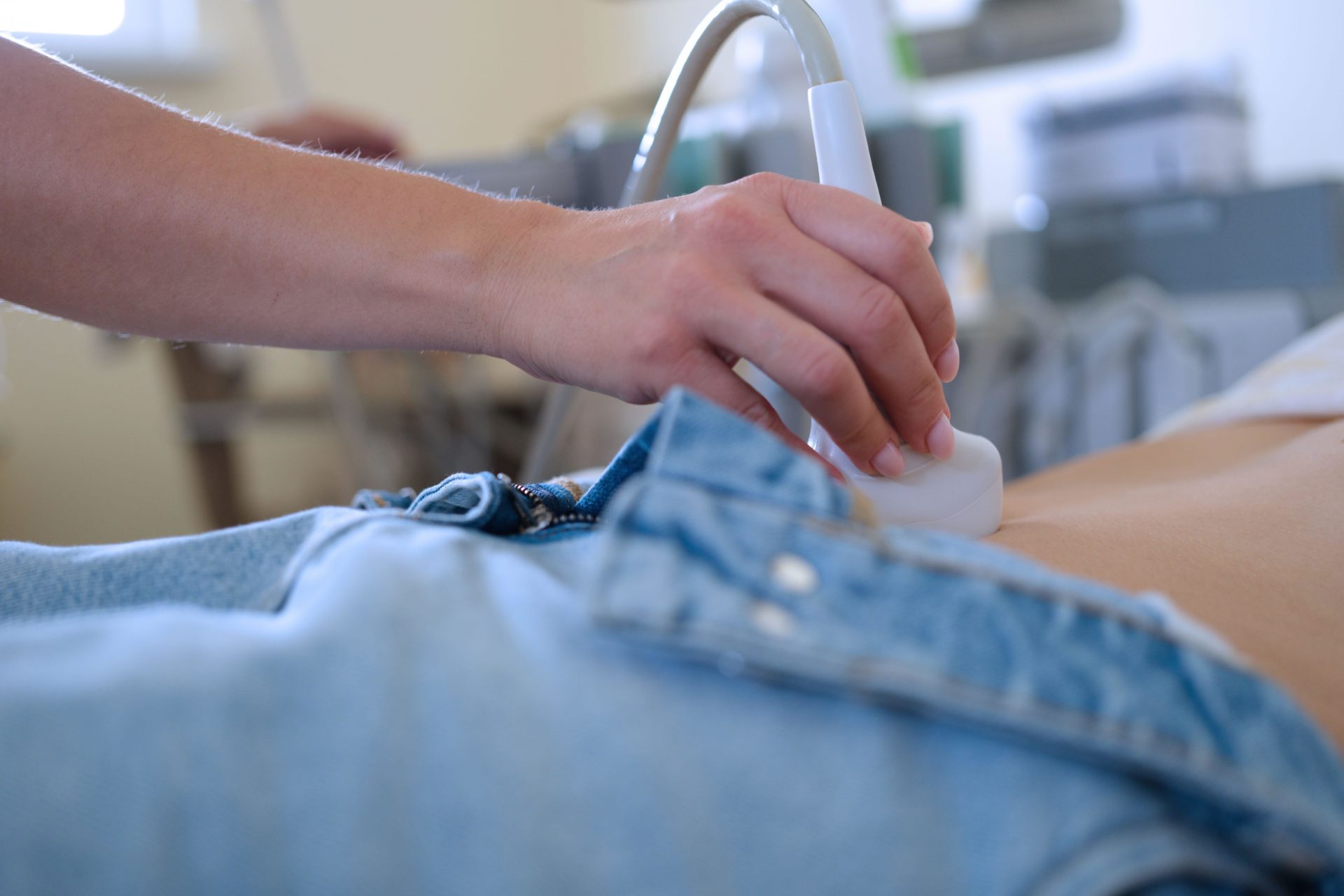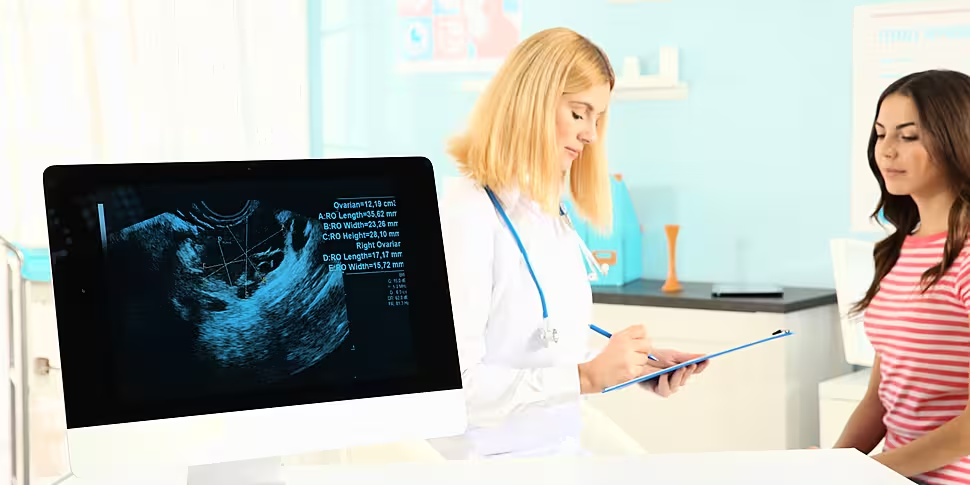This week on Making Babies, Master of the National Maternity Hospital Professor Shane Higgins gave advice to women navigating the first 9-12 weeks of their pregnancy.
“You’re now thinking about where you want to go, what model of care you want to choose,” he told Lunchtime Live.
“You’ll probably have had contact with your GP at this point in time; so it’s booking with your hospital.
“That’s going to lead you to what we refer to as a booking antenatal appointment where around about 12-weeks, most hospitals will see you.
“There’ll be a detailed history taken, any risk factors identified, an opportunity for you to start asking any questions you wish to ask, and that’s probably where you’re going to get your first scan.”
Prof Higgins said a range of bloods will be done to check the pregnant person’s iron, blood group, and immunity to a range of diseases such as chickenpox and rubella.
 Ultrasound of uterus in early pregnancy to woman in clinic. Image: Alexander Korzh / Alamy. 14 August 2021
Ultrasound of uterus in early pregnancy to woman in clinic. Image: Alexander Korzh / Alamy. 14 August 2021At this point, he said parents can decide if they want to avail of further private testing known as NIPS (Non-Invasive Prenatal Screening).
“That identifies whether the baby’s at risk of having a chromosomal abnormality or not,” he said.
“That’s not funded, so if you want to go down the road of having a NIPS test, then you have to pay for it yourself.
“It’s a scan with a blood test from mum, which identifies foetal DNA in the maternal circulation.
“It is able to then fairly accurately – although it’s not a diagnostic test – determine whether the baby might have one of the chromosomal abnormalities it’s looking for.”
According to Prof Higgins, if the test comes back positive for an abnormality, there are further diagnostic tests which can be undertaken to confirm the condition.
Main image: Computer with ultrasound scan with doctor and patient on background. Image: Pixel-shot / Alamy. 15 November 2016









